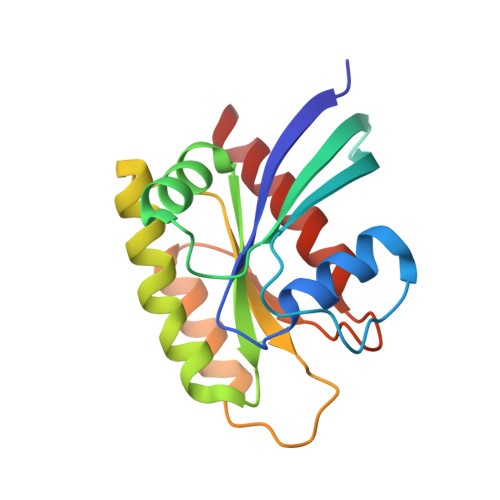Biochemical and Structural Analysis of Common Cancer-Associated KRAS Mutations.
Hunter, J.C., Manandhar, A., Carrasco, M.A., Gurbani, D., Gondi, S., Westover, K.D.(2015) Mol Cancer Res 13: 1325-1335
- PubMed: 26037647
- DOI: https://doi.org/10.1158/1541-7786.MCR-15-0203
- Primary Citation of Related Structures:
4QL3, 4TQ9, 4TQA, 4WA7 - PubMed Abstract:
KRAS mutations are the most common genetic abnormalities in cancer, but the distribution of specific mutations across cancers and the differential responses of patients with specific KRAS mutations in therapeutic clinical trials suggest that different KRAS mutations have unique biochemical behaviors. To further explain these high-level clinical differences and to explore potential therapeutic strategies for specific KRAS isoforms, we characterized the most common KRAS mutants biochemically for substrate binding kinetics, intrinsic and GTPase-activating protein (GAP)-stimulated GTPase activities, and interactions with the RAS effector, RAF kinase. Of note, KRAS G13D shows rapid nucleotide exchange kinetics compared with other mutants analyzed. This property can be explained by changes in the electrostatic charge distribution of the active site induced by the G13D mutation as shown by X-ray crystallography. High-resolution X-ray structures are also provided for the GDP-bound forms of KRAS G12V, G12R, and Q61L and reveal additional insight. Overall, the structural data and measurements, obtained herein, indicate that measurable biochemical properties provide clues for identifying KRAS-driven tumors that preferentially signal through RAF.
Organizational Affiliation:
Departments of Biochemistry and Radiation Oncology, The University of Texas Southwestern Medical Center at Dallas, Dallas, Texas.
















